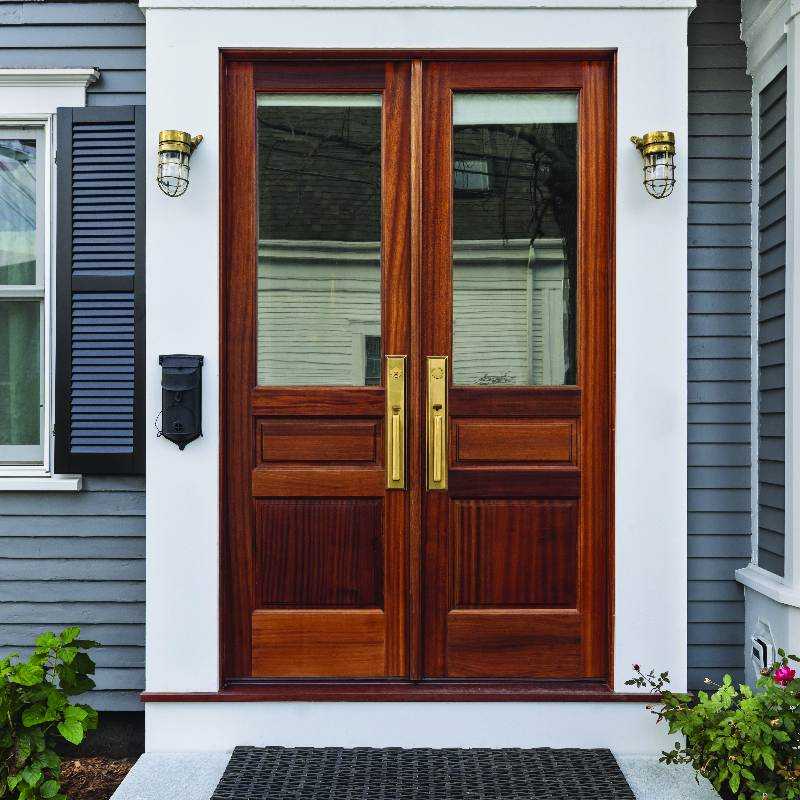
5 Signs It's Time to Replace Your Entry Door
How do you know it’s time to replace your entry door? While front doors aren’t as popular of an entryway as they used to be, they are still a major factor in the energy efficacy, comfort, safety, and curb appeal of your home. Even if you use the garage or side door as your primary entry, you could be throwing hundreds or even thousands of dollars out the door on heating and cooling losses. While most people nowadays understand that they need to replace their old single-pane windows with new energy-efficient ones, the same can’t be said about doors. There are many benefits of replacing your entry door — especially if it’s old and worn out. However, no one wants to fix something that isn’t broken, so it’s important to know these 5 signs that say it’s time to replace or repair your entry door.
1. You Have Problems Opening and Closing Your Door
One of the easiest ways to tell it may be time to replace your door is if you’re having difficulty opening and closing it. This is especially true if your doors stick in the winter but are easy to open in the summer, as this is a sure sign that conditioned air is leaking out of your home. If you can see light from the inside or outside with the door closed, you may have air leaking through your door. Another way you can identify if you have energy leakage is to take a lighter and trace it a few inches from the frame of the door. If the flame tries to move outside, this is an indication of air leakage, which can end up costing you thousands of dollars in increased energy bills over time.
2. Your Door is Rusty, Dinged, or Beat up
If your door is beat up and rusty, this can indicate that the structural integrity of the door may be compromised. Many of the standard residential doors you find at Home Depot or Lowes are laminated steel on top of a wood frame and are not very structurally sound. If they were, you wouldn’t be able to ding them easily. And when you think about it, is a door that dings easily really the kind of barrier you want protecting your home and your loved ones from the outside world? If the same door is rusted, this means that moisture is accumulating and probably isn’t just coming from the exterior of your home. You’ll want to get any incident of rust checked out immediately as the moisture could also be seeping into the interior wood frame of your entryway.
3. Your Door is Weathered, Warped, or Cracked
Between getting banged, slammed, kicked, and being exposed to huge temperature changes, doors take a pretty serious beating over their lifetime. Many of these doors have expanded and contracted with the weather so much over the years that they have cracks, are warped, or are extremely weathered. Give your door a thorough once over, paying special attention to any areas where you can see light coming through or areas that have cracks, also known as stress fractures. These are signs that your home is being exposed to the outside elements and may need replacing.
4. You Can Feel a Draft Near Your Door
Do you find yourself stuffing a towel under your door to help keep out the cold or heat? If so, you already know there’s a problem. The good news is you don’t have to replace your entire door or ruin your good towels. These days, many doors have a spring-loaded threshold. Check to see if the threshold has three or four screws along its surface. If so, you may be able to raise it up to your weatherstripping. If you can’t raise the threshold, but the weatherstripping is worn out, you can pretty easily replace the weatherstripping and see if that solves the problem.
5. Your Door Has Moisture Between Glass Panes
Similarly to windows, many doors have double-pane glass. Over time, and especially in older doors, the seal between those two panes can fail, leading to moisture, mildew, and even mold between the panes. This is a sure sign that it’s time to replace your door. With windows, people often let these issues go longer than they should, especially if their windows are made from inorganic materials as the risk of the mold or mildew spreading into the home is much less. With doors, the urgency to replace must be much quicker. Until about 10 years ago, all residential doors had a wood core or frame, which means that the mold and mildew are surrounded by organic material and will spread, especially if your entry door is shaded or doesn’t receive much sunlight. Take it from us, replacing a door is a lot less painful than mold remediation, which can cost thousands of dollars.
Keep an eye on your entry door. While it may not be the most used door in the house, it can still affect the health and integrity of your home. If you are experiencing any of the above problems and would like a professional opinion on whether or not you should replace your doors, feel free to give us a call at 817-410-7272. All consultations are free, and we’re happy to give you our honest and objective opinion about the health of your entry door and how it can affect your home.